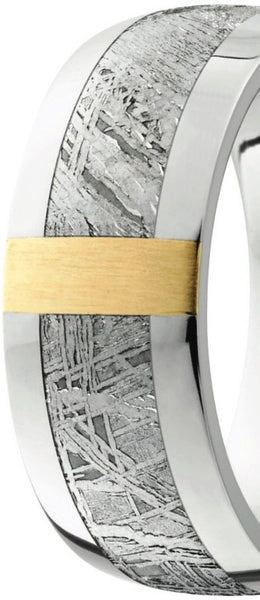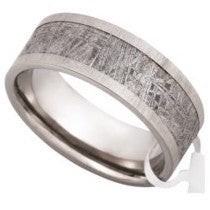
This shows a normal seam near the top of the ring.
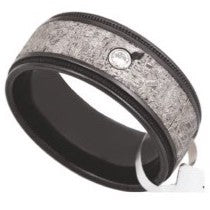
This inclusion didn't show until after the diamond was set and the etching of the meteorite was complete.
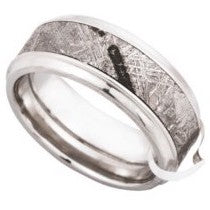
This is around the largest inclusion you would see. There is nothing wrong structurally with the metal.
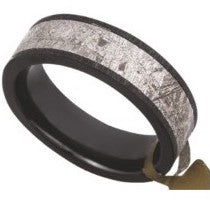
This is a good example of the fluctuations in pattern, coloring, and texture of meteorite.
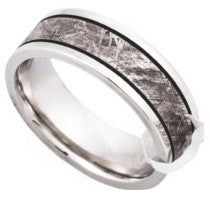
This is another good example of the coloring and texture of meteorite.

This is another natural occurring inclusion. It looks similar to how a drop of water on the metal. This is not a common inclusion.
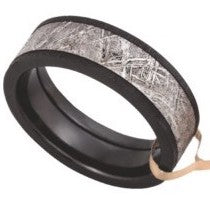
This is a beautiful example of the Widmanstätten pattern. It also shows good variation in color.
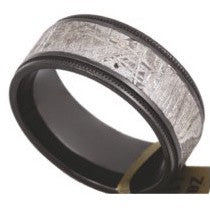
This ring exhibits a common black spot inclusion found in meteorite.
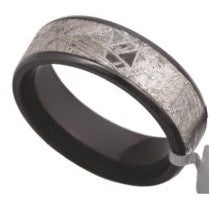
This ring exhibits a less common pattern and coloring for meteorite.
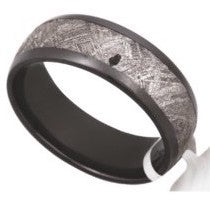
This is another example of a black spot found in meteorite.
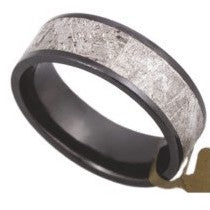
The meteorite in this ring shows an unusual area of many small black spots.



